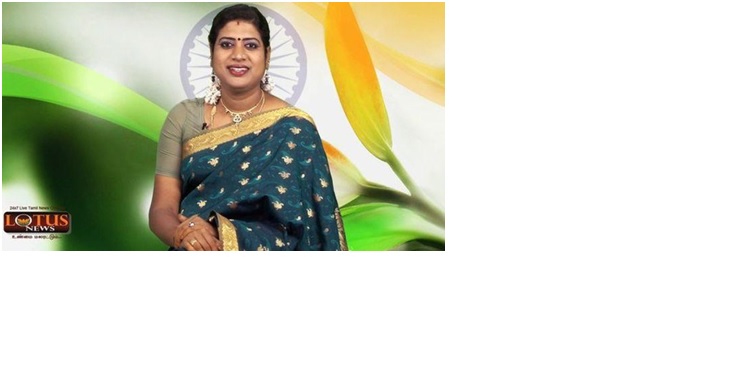The NALSA Judgement: What is it?
In April of 2014, the Supreme Court of India gave a landmark judgement in the case National Legal Services Authority v. Union of India, which declared transgender people to be a ‘third gender’. It affirmed that the fundamental rights granted under the Constitution of India will be equally applicable to transgender people, and gave them the right to self-identification of their gender as male, female or third-gender. The judgement was a major step towards gender equality in India. The Supreme Court also made other provisions for the Transgender community as well:
- Transgender would be given education and employment reservations as OBCs.
- The Centre must devise social welfare schemes for the third gender community and run a public awareness campaign to erase social stigma.
- States must construct special public toilets and departments to look into their special medical issues.
- If a person surgically changes his/her sex, then he or she is entitled to their changed sex and cannot be discriminated.

What is being done?
The government has been making great strides to be more inclusive of transgenders. Great impetus has been put on ensuring that Bureaucratic procedures include transgender as a gender.
- Although, since 2013 transgender people in India have been able to choose their gender as ’other’ on ballot forms, only after the NALSA judgement were they officially, legally recognized.
- In August 2013, AADHAR, India’s Unique Identification Service recognized transgender as a separate category under the head of gender, and granted 1,600 transgenders unique identification cards.
- In 2005, the third gender option was included in the Indian passport. India was one of the first few countries to introduced the third gender in passport, well ahead of several Western Countries. However, the third gender was symbolized by the letter ‘E’, short for Eunuch. Following the 2014 NALSA Judgement, online passport application forms had the option of choosing ‘transgender’ apart from ‘male’ or ‘female’ in the gender category. Satyashree Sharmila is the first person in Maharashtra, and India, to be issued the document with her gender listed as ‘Transgender’.
- In 2016 the Indian Railways and Indian Railway Catering and Tourism Corporation (IRCTC) added ‘transgender/third gender’ to the gender category along with the other categories.
- In April 2017, the Ministry of Drinking Water and Sanitation instructed states to allow transgender people to use the public toilets of their choice.
- Recently the Madras High Court passed another judgment (Case 7536 of 2017) which allowed a transgender — post-sex reassignment surgery — to change her name in school and college records. “Merely because the petitioner belongs to the third gender, he or she cannot be made to run from pillar to post on the ground that there are no rules available permitting such changes,”observed the court.
- In a landmark judgment, the Allahabad High Court ruled that the application forms for the issuance of ration cards should “necessarily” include a transgender category along with other genders. The judgment also stated that transgender can also be included in Section 13 of the National Food Security Act, 2013 as head of the household.
Many state governments have started including transgenders into their bureaucratic workforce.
- In 2015, the Tamil Nadu Uniformed Service Recruitment Board for the first time allowed transgender to join the police force. K. Prithika Yashini became the first transgender police officer in the state of Tamil Nadu. While, at the time, Tamil Nadu had three transgender constables, but Yashini became the first trans person to hold the rank of officer in the state.
- In 2015, the first openly transgender person was elected to a public office in India when Madhu Bai Kinnar became mayor of Raigarh, while other trans citizens acquired other prominent civic roles in the police force and education system.
- The states Tamil Nadu and Kerala were the first Indian states to introduce a transgender welfare policy under which they can access Sex Reassignment Surgery (SRS) in the government hospital, free housing programs, various citizenship documents, admission in government colleges with full scholarship for higher studies and initiating income-generation programs. In 2016, Kerala started implementing free SRS through government hospitals.
- In February 2017, Bihar introduced the third gender category in the examinations conducted by the Bihar School Examination Board (BSEB). 18 transgender students were allowed to take Class 10 and Class 12 examinations.
- In May 2017, the Kochi Metro hired 23 members of the Hijra community, who will start working behind ticket counters and on housekeeping teams. With this, the Kochi metro becomes the first government-owned company to recruit staff from the transgender community. This is in line with Kerala State’s initiative to give the marginalized group better access to job opportunities. The Guardian India, for an article, talked to a few of the 23 employees. “Trans people don’t get work, not even in big multinational companies, IT firms, not in government jobs, nothing. Even when we do get jobs, we are often made fun of. If I work in an office, the other workers for example will make fun of how I walk like a woman. I will be a laughing stock. I hope it will be in all the newspapers and on TV channels and other companies who will take notice of it and start hiring trans people”, says Vincy, who will start working on a ticket counter.
Transgenders in the Private Sector
While the NALSA is not applicable on Private enterprises, it was successfully able to initiate conversation in India Inc. to include transgender people. Many Indian companies have been including the third genders or acknowledging them in small actions that mean big.
- The smallest of these actions is allowing for bathroom access to the third gender. The Kochi Metro Rail has converted its big bathroom for the differently-abled into an all-gender bathrooms to be shared with the disabled. Such a move does not require a major infrastructural investment or change, but sends out a positive message. It de stigmatizes being from the third gender.
- In 2014, Padmini Prakash became India’s first transgender to anchor a daily television news show. She presents a show on the Tamil TV Channel ‘Lotus TV’. She hit the ground running and has garnered praise from her employers, the transgender and even media veterans. In the past, Rose Venkatesan, trans-woman had made her television debut in the talk show Ippadikku Rose which aired on Vijay TV. The show dealt with current affairs touching a wide variety of social issues including traditions, taboos, rebels and culture. She ended her television career and became a Radio Jockey at BigFM 92.7 in 2011, airing the afternoon show Rosudan Pesungal.

- Godrej – a leading Indian Conglomerate with interests ranging from consumer goods to real estate – has gender neutral company policies in place. Godrej India Culture Lab head Parmesh Shahani, in conversation with The Economic Times, talks about the company’s equal opportunity policies: “Out anti-harassment policies are gender neutral. We also have equal benefits to same sex partner of employees, fully paid three-month adoption leave (which is also gender neutral) and a medical benefit scheme which includes the spouse/domestic partner, parents and/or children of an employee.
- In February 2017 IBM India started a consortium of over 30 companies with Interweave Consulting to discuss LGBT inclusion and launches an initiative for transgender empowerment. While the identities of the companies have been withheld, they are a mix of MNC’s and Indian Companies from technology, retail and FMCG domain. An outcome of this consortium is Project Vayati, aimed at hiring people from the transgender community. One of IBM’s diversity initiatives is the reverse mentoring project. It is a voluntary programme that pairs up senior-level staff with a member of the Employee Alliance for Gay, Lesbian, Bisexual, and Transgender Empowerment (EAGLE). Over a period of six-months, both engage in one-on-one conversations in which the mentor offers a glimpse of his cultural life – he offers information about queer pride events and film festivals – as well as his personal challenges and talents. IBM insists that its diversity initiatives should not be mistaken for corporate social responsibility activities.
- IBM is not the only company in the IT sector that is tweaking its norms to recognize and include the third gender. Since 2016, HCL, Dell and Infosys among others have dropped columns to seek gender information.
- Accenture has been committed to ensuring an inclusive environment for their LGBT employees. Further, the provide training that includes bisexual and gender identity issues.
- CISCO has a ‘Gay, Lesbian, Bisexual, Transgender, and Advocates Network (GLBNT&A) which embraces LGBT individuals as a part of the CISCO workforce. To ensure LGBT employees feel valued, their global policies have redefined terms like ‘spouse’, ‘partner’ etc. Their general strategy has been to complement local legislation and help ensure that LGT employees and their families feel that they are equal members of the Cisco family.
- In 2016, a travel company in Mumbai called Wings Travel launched a project to train up to 300 members of the LGBT community to drive abs in the city. The service is called Wings Rainbow. Wings Travels can place about 1500 LGBT drivers in it taxi feel nationwide, said Arun Kharat, the company’s founder and director.
- Intuit has also been vocal about LGBT rights and inclusivity at the workplace. Through its Pride Network, safe spaces in office have been created over the past year, and counselors are regularly brought in to offer advice to employees who ask for it.
- A Chennai-based startup called Peri Ferry is aiming to push for inclusivity in the Indian work space. They act as equal opportunity job consultants for Transgenders and Transsexuals and provide them with alternative job solutions.
- In June 2017, Kalinga Institute of Social Sciences became the first employer in the private sector to appoint a transgender as the Social Development Officer.
- IBM, Goldman Sachs and Google have come together to launch an LGBT resource guide for India Inc. Titled ‘Creating Inclusive Workplaces for LGBT Employees in India’, highlights the business case for the needs LGBT employees.
Conclusion
By the looks of it then, Corporate India’s mindset is changing. A lot of companies are doing their bit to bring in a healthy work culture for transgender employees. Small acts like making LGBT networks, starting support groups, conducting gender inclusive workshop, tweaking privacy norms and making small infrastructural changes like all-gender restrooms are making a big impact on the way other companies perceive the transgender community.
Author: This post has been submitted by Karan Arora, as part of his assignment with Ungender Insights. Karan Arora is currently a student of Jindal Global Law School, Sonipat .










